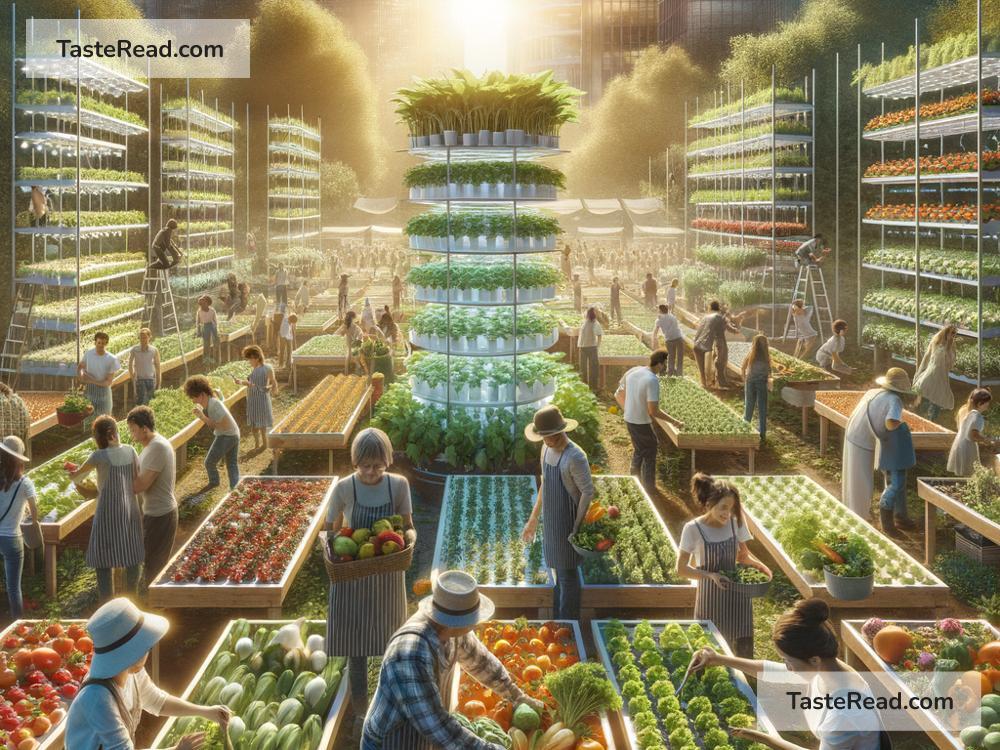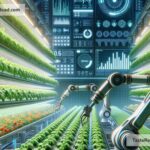The Future of Food Sovereignty: A Path to Feeding Ourselves Sustainably
In the years ahead, food sovereignty is becoming an increasingly important concept. But what exactly does food sovereignty mean? Simply put, it’s the idea that people, communities, and nations should be able to produce and control their own food in ways that are healthy, sustainable, and supportive of local cultures and economies. It’s about having the power to decide what you grow, how you grow it, and ensuring food systems meet the needs of the people—not just big corporations or global markets.
As the world faces challenges like climate change, rising populations, and unfair trade practices, the future of food sovereignty is critical. By empowering communities to take control of their food systems, we can create healthier diets, protect the environment, and ensure food security for generations to come. But how exactly could food sovereignty look in our future? Let’s explore.
Shifting Toward Local Food Systems
In a world where supermarkets sell foods grown thousands of miles away, food sovereignty emphasizes the importance of local food systems. Local farmers growing for local people can reduce the need for transportation and cut down on emissions that harm the environment. Plus, when food grows closer to home, it’s often fresher, healthier, and tastier.
In the future, communities may work harder to support small farmers and gardeners as a way to stay connected to our food sources. Urban farming—growing food in cities through rooftop gardens, vertical farms, and small community plots—could play a big role. These local initiatives can make cities greener, provide jobs, and create food security for millions of people.
Protecting Seeds and Traditional Knowledge
Seeds are the foundation of food sovereignty. In recent years, there have been ongoing debates about who owns seeds. Large agricultural corporations often patent seeds, which limits farmers’ ability to save and plant them freely. This creates dependence on expensive seed companies and reduces the diversity of crops available.
In a food sovereign future, people will prioritize preserving native seeds and protecting traditional farming knowledge passed down for centuries. Projects like seed banks and community seed swaps will allow farmers to save and share seeds, ensuring the survival of diverse plant varieties. These traditional practices not only sustain biodiversity but also boost resilience to changing climates.
Empowering Farmers and Laborers
Farmers are the heart of food production, but in many cases, they are underpaid and overworked. Corporate control over agriculture often leaves small-scale farmers struggling to survive. Food sovereignty is about making sure farmers have fair wages, access to resources, and decision-making power in food systems.
Future initiatives may focus on building cooperatives—groups of farmers who work together to produce and sell their goods directly to consumers. Cooperatives can reduce farmers’ reliance on middlemen and ensure they earn a fair share of profits. Technology, too, can empower farmers by helping them predict weather patterns and grow sustainable crops.
Reducing Food Waste
Every year, billions of tons of food are wasted worldwide. Food sovereignty isn’t just about growing food—it’s also about using it wisely. The future will likely include more education and systems to minimize waste at all levels, from farms to kitchens.
One solution lies in better food storage systems—low-cost or solar-powered refrigeration could help remote communities keep food fresh longer. On the consumer side, people may become more aware of buying only what they need, composting uneaten scraps, or donating extras to food banks.
Adapting to a Changing Climate
Climate change is one of the biggest threats to food security. More frequent droughts, floods, and extreme weather events are already impacting farmers worldwide. In the future, building resilient food systems will be essential to achieving food sovereignty.
Farmers may adopt agroecology techniques to combat climate challenges. Agroecology is the practice of farming in harmony with nature by using diverse crops, natural pest control, and sustainable water systems. These methods not only protect the environment but can also make farms more sustainable during unpredictable weather.
Governments and organizations will also need to prioritize policies that protect small farmers and promote adaptation to climate change. For example, farmers growing climate-resistant crops like millet or sorghum could become a common practice.
Technology Meets Tradition
Technology will play a key role in the food sovereignty movement, but it must be used wisely. For example, smart farming tools and robotics can help reduce labor challenges, while data-driven insights can improve yields. However, technology should complement traditional farming knowledge rather than replace it.
Future innovations could also focus on clean energy for food production, such as solar-powered irrigation systems. Technology can make farming less resource-heavy, but the goal will remain the same: providing healthy food for all while protecting the planet.
Building a Shared Vision for the Future
Food sovereignty isn’t just something farmers or governments can achieve alone—it requires cooperation and shared responsibility from all of us. In the future, people may come together to demand fair policies, educate themselves about where food comes from, and support businesses committed to ethical practices.
At its core, food sovereignty is about ensuring everyone has access to safe, nutritious food while respecting the Earth and the people who grow it. By embracing local food systems, protecting seeds, adapting to climate change, and ensuring fairness, communities around the world can take control of their food future. The movement for food sovereignty gives us hope—hope for a healthier planet, stronger communities, and a world where everyone has enough to eat.
The future of food sovereignty isn’t far off—it’s something we can start building today. Whether you choose to support local farmers, start your own garden, or reduce food waste, every small step matters. Together, we can create a food system that works for people and the planet.


